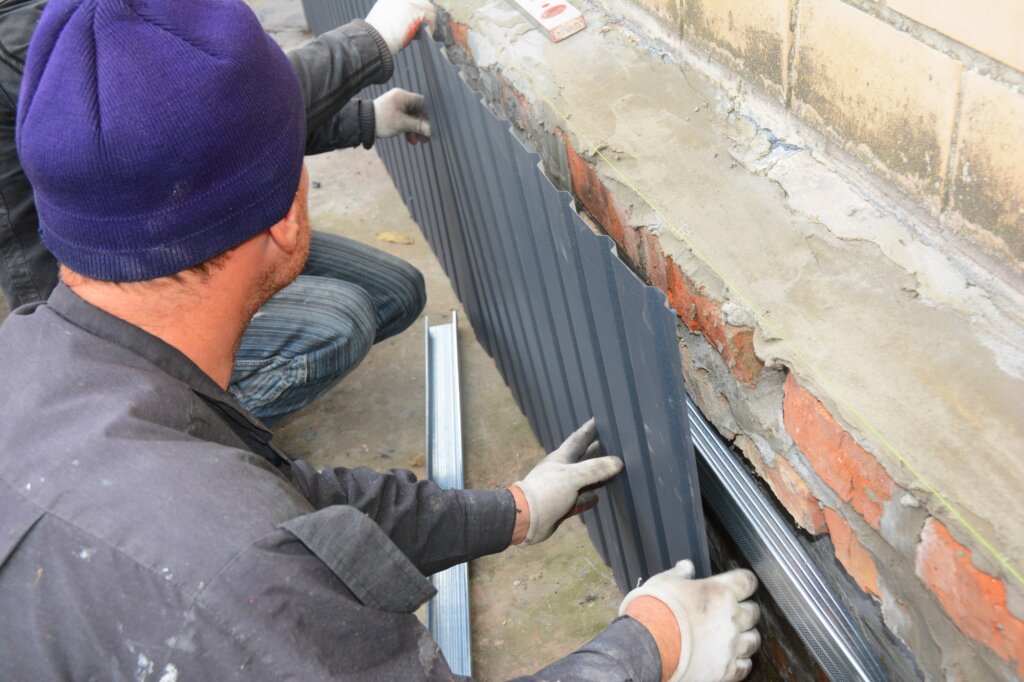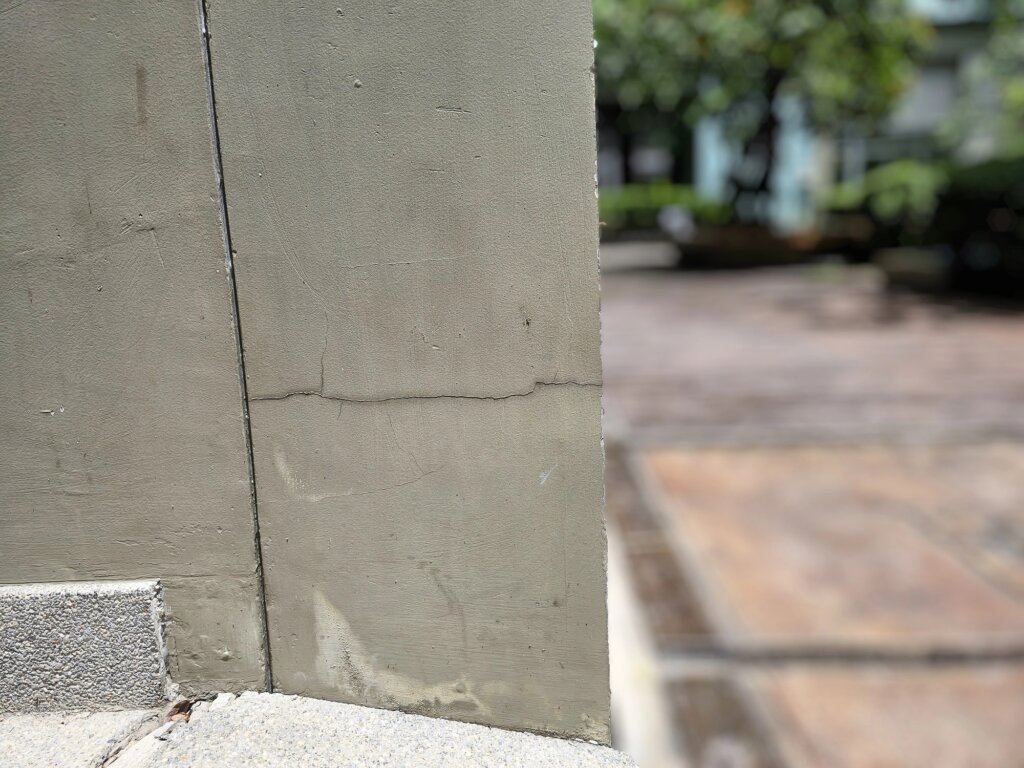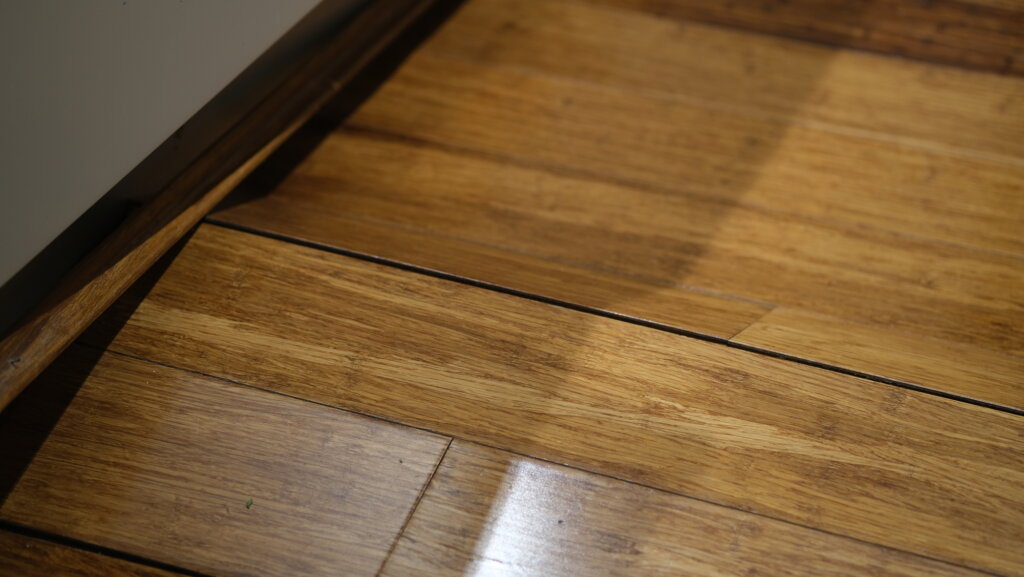When it comes to the safety and value of your home, the foundation is key. Many homeowners may not realize the urgency of fixing foundation issues until it’s too late. Small cracks and minor settling might not seem like big problems at first. Delaying repairs on your home’s foundation can lead to serious structural damage and increased repair costs.
Ignoring these early signs can cause doors and windows to misalign or floors to become uneven. Over time, these issues may grow into much larger problems that affect the overall stability of your home. The longer you wait, the more complicated and expensive the repairs can become.
Understanding the importance of timely action is crucial. Fixing foundation issues promptly not only protects your home but saves you from facing costly and extensive repairs in the future. Stay proactive, and ensure your home’s foundation remains strong and secure.
What Are The Signs Of Foundation Problems?
Identifying early signs of foundation problems is crucial to protect your home from expensive repairs. Common indicators include cracks in walls, sticking doors, and uneven floors.
When Should Homeowners Call A Foundation Repair Company?
You should call a foundation repair company when you notice cracks in the walls, especially those wider than 1/8 inch. These may appear around door frames or windows. They can signal serious issues with your home’s foundation. Other warning signs include doors or windows that stick or won’t close properly. These issues could mean that the structure is shifting due to foundation problems.
Uneven or sloping floors are also a concern. This can indicate that the foundation is failing to support parts of the house. Watch for gaps between walls and ceilings or floors, as they often suggest instability beneath your home. If you observe any of these signs, it’s important to act quickly. Delaying repairs can lead to greater damage and higher costs.
Finally, if you see these issues regularly after heavy rains or droughts, moisture levels around your foundation may be affecting its stability. Contact a repair company for a thorough inspection to ensure your home’s safety and stability.
Why Is Timely Foundation Repair Important?
Taking care of foundation issues as soon as they appear can prevent more significant problems, save money, and ensure the safety of your home. Fixing foundation problems promptly helps maintain structural integrity and avoids the potentially severe effects of putting off repairs.
What Could Happen If You Delay Foundation Repairs?
Delaying foundation repairs can lead to expanding damage over time. Small cracks may widen, and what starts as a minor problem can turn into a major issue that requires costly repairs. When temperature changes occur, soil can expand or contract, putting pressure on your foundation. This can cause noticeable shifts in your home’s structure if left unaddressed. If you wait for foundation repairs, the damage can extend to walls, floors, and windows, causing them to stick or not close properly. These complications can become more pronounced, causing stress and increasing repair costs. You could face safety risks if the structural stability of your home is compromised.
How Does Delaying Repairs Affect Structural Integrity?
The foundation is a crucial part of your home’s structure. When repairs are delayed, the stability of the entire building is at stake. Cracks in the foundation can lead to misaligned doors and windows, sagging floors, and even roof problems. Foundation issues can worsen if you put off foundation repairs, impacting the structural integrity over time. Seasonal changes, such as spring rains, can exacerbate these issues, eroding the foundation further. As moisture seeps in, it can weaken the soil, causing shifts and settling. This can lead to uneven floors and cracks in walls, indicating a need for immediate attention.
What Are The Risks Of Waiting For Foundation Repairs?
When you delay foundation repair, you increase the likelihood of encountering severe risks. Foundation issues don’t just impact the appearance of your home; they can also affect its safety and functionality. Cracks and gaps can lead to water leaks, promoting mold growth and increasing maintenance costs. Ignoring foundation problems means risking further damage to plumbing and wiring in your home. If left too long, these issues might require you to undertake major renovations. The financial implications are significant if repairs become necessary during peak seasons, such as spring, when more severe structural problems become evident.
What Are The Costs Associated With Foundation Repairs?
How Do Repair Costs Increase With Time?
Delaying foundation repairs often leads to increased costs. Small issues like tiny cracks can become larger over time, turning a minor problem into a major one. When damage worsens, not only the foundation itself but also other structural components might need repairs.
Research has shown that repair costs can increase substantially when ignored. For instance, a study found costs could rise by 35% when repairs are delayed, amounting to an extra $6,071 on average. This doesn’t even cover additional cosmetic damages like cracked walls or flooring issues that may arise when foundation problems grow worse.
What Factors Influence Foundation Repair Costs?
Several factors can affect the cost of foundation repairs. The most obvious one is the extent of the damage. A small hairline crack might be inexpensive to fix compared to a major structural shift.
The location of your home also plays a role. Repair prices vary across different regions and cities. Soil conditions and local climate can impact both the foundation and the methods used to repair it.
Lastly, the method of repair needed can greatly influence the cost. Common techniques include piering, slab jacking, or underpinning, each with its price range. Materials used and the labor costs involved also contribute significantly to the total expenses.
How To Budget For Foundation Repair Costs?
To budget effectively for foundation repairs, it’s smart to start by getting multiple quotes from reputable contractors. This will give you a clearer idea of potential costs and help avoid any nasty surprises later.
Set aside a home maintenance budget that includes unexpected repairs. While it may be hard to predict when you’ll need it, having a reserve can lessen the impact on your finances.
Another useful step is purchasing a home insurance policy that covers foundation issues when possible. Not all policies do, so check the details. This can provide some assurance and financial backup in case of extensive repairs.
What Happens To Your Home When You Delay Foundation Repairs?
Delaying foundation repairs can cause significant and long-lasting issues. By ignoring these problems, you may face increased costs and risks to your home’s safety. Understanding these impacts is crucial.
How Can Foundation Damage Worsen Over Time?
Foundation damage often starts small, such as a tiny crack. If left unattended, this can expand due to continuous pressure and stress on the foundation. As time progresses, small cracks can become large gaps, leading to serious structural damage. This kind of damage is progressive, meaning it can rapidly worsen and become more severe.
When you delay foundation repairs, the risk of foundation settlement increases. This means the ground beneath your home may shift or sink, causing doors and windows to stick or not close properly. Floors may also become uneven, creating safety hazards. Additionally, the appearance of your home may suffer, decreasing its value and curb appeal.
Ignoring foundation damage can also lead to moisture problems. Moisture can penetrate through cracks, fostering mold and mildew growth. These can affect air quality, leading to health issues for residents, especially if moisture problems arise in the crawl space. Early intervention is key in preventing these issues from escalating.
What Is The Domino Effect Of Foundation Issues?
Foundation issues can create a domino effect throughout your home. When the foundation moves or settles, it affects other structural elements. This movement can lead to misaligned walls, which in turn can crack and compromise the integrity of the building. Such movement might require extensive and costly repairs, not limited to the foundation itself.
Mold and mildew growth can be a byproduct. Moisture that seeps through foundation cracks provides an environment for these to thrive. They not only damage the building materials but also pose health risks. The spread of mold can require professional remediation, which adds to the repair costs.
What Should Homeowners Know About Foundation Maintenance?
Effective foundation maintenance can help you avoid costly repairs and preserve your home’s safety. Paying attention to soil conditions, conducting regular inspections, and proactive problem prevention are key.
How To Prevent Future Foundation Problems?
To prevent future foundation issues, maintaining proper drainage around your home is essential. Ensure that gutters and downspouts are clear and functioning correctly to direct water away from the foundation. Planting trees and shrubs at a safe distance can help avoid roots disturbing the foundation.
Install a sump pump, if necessary, to manage excess water and prevent soil from becoming too saturated. Consider seasonal maintenance like adjusting watering practices during dry periods to keep the soil stable. You can consult a professional for guidance on specific actions based on your home inspection.
What Regular Inspections Should Homeowners Conduct?
Conduct regular inspections to catch potential foundation problems before they become severe. Look for visible cracks in the foundation, walls, and floors. A sloping floor or doors that do not close properly may indicate that the foundation is shifting.
Annual inspections by a foundation repair specialist can help identify problems early. They can recommend specific measures, such as soil stabilization or underpinning, if necessary. Regular evaluations of plumbing systems, like checking for leaks, can also help prevent foundation damage.
How Does Soil Type Affect Foundation Stability?
Soil type plays a critical role in foundation stability. Clay soils can expand and contract significantly with moisture changes, putting pressure on the foundation and causing it to shift. Sandy soils provide better drainage but may not support heavy loads well.
Knowledge of the local soil condition can guide suitable foundation designs and maintenance steps. Homeowners on expansive soils need to pay extra attention to moisture control around the house. Consulting with experts about soil characteristics can help maintain a balanced foundation environment, reducing the risk of significant issues over time.
How To Choose A Foundation Repair Company?

Finding a reliable foundation repair company is crucial for maintaining your home’s stability. Key factors include the contractor’s experience, credentials, and essential inquiries to ensure you select the right professional.
What Should You Look For In A Foundation Repair Contractor?
When choosing a foundation repair contractor, start by considering their experience. A company with many years in the field is often more reliable. Look for contractors with a solid track record of successful projects.
Another important aspect is whether the contractor is licensed and insured. Licensing ensures they meet local and state requirements, while insurance protects you from liabilities. Review testimonials or reviews from past clients. Positive feedback can be a good indicator of their reliability and quality of work.
Ask if they offer a warranty for their services. A long-term warranty can safeguard you against future issues and shows the company’s confidence in their work.
How To Verify The Credentials Of A Foundation Repair Professional?
To verify the credentials of a foundation repair professional, start by checking their licensing status. You can do this through your state contractor licensing board. Licensing ensures they are allowed to perform repair work.
Next, ask for proof of insurance, and confirm that it is current. This protects you from potential damages during the repair process. Contact the Better Business Bureau (BBB) to check their rating and any complaints filed against them. A strong BBB rating suggests a reputable company.
Additionally, look for affiliations with respected organizations such as the Foundation Repair Association. Membership in such groups often requires adherence to specific industry standards, reinforcing their credibility.
What Questions Should You Ask Before Hiring A Foundation Repair Company?
Before hiring a foundation repair company, ask several key questions. Inquire about the types of foundation problems they have handled before and their success stories. This gives you insight into their expertise.
Ask about the repair methods they use and why they choose them. Understanding their approach can help you evaluate their suitability for your needs. Don’t forget to discuss pricing and get a detailed quote. Make sure it covers all aspects of the repair to avoid surprises later.
Finally, inquire about their projected timeline for the repairs. A clear timeline helps manage your expectations and allows you to plan accordingly.
Frequently Asked Questions
Understanding foundation repair is important for maintaining your home. People often wonder about the effects of delaying foundation repair and how it impacts their living situation. Below are answers to common questions regarding this topic.
What happens if I don’t fix foundation issues?
Delaying foundation repair can lead to more severe structural problems. Over time, small cracks can grow, causing walls to tilt or floors to become uneven. This can impact your home’s safety and value. Learn more about the consequences of delaying foundation repair.
How long to wait after foundation repair?
After completing foundation repair, it’s best to wait a few weeks to ensure that all adjustments have settled properly. This allows time for your home to fully adapt to changes, making future repairs less likely. Be sure to follow any specific guidance from your repair contractor.
How long can you live in a house during foundation repair?
Many foundation repairs allow you to stay in your home while work is being done. The duration depends on the extent of damage and the method used. Typically, the process takes a few days. Always check with your contractor for details about your situation.
What time of year is best for foundation repair?
The most effective time for foundation repair usually falls during dry months. Soil conditions are more stable, allowing for better results. This varies depending on your local climate, so consult with a professional to determine the best timing in your area.
Can delayed foundation repair lead to increased costs in the long run?
Yes, delaying foundation repair often results in higher costs. As minor issues escalate, more extensive repairs become necessary. Addressing problems early can save you money and reduce the risk of further damage. Consider these factors when deciding on your repair schedule.
What are signs that foundation repair can no longer be delayed?
Signs that you shouldn’t delay foundation repair include:
- Widening cracks in the walls
- Doors that are misaligned
- Windows that stick
If you notice these issues, it’s advisable to consult with a professional to prevent further complications. Early detection helps maintain your home’s integrity.



